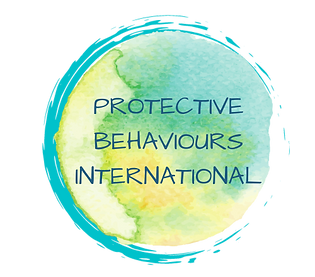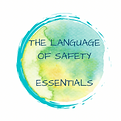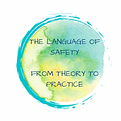
Language of Safety
What exactly is The Language of Safety (LOS)?
"The Language of Safety is the glue that holds Protective Behaviours (PB) together. Our language, both verbal and non-verbal, is the means by which we interact and communicate with others. Over the years, it has been clearly demonstrated that PB is a dynamic, evolving process.
When considering the Language of Safety, it is important to keep in mind both the content (what we say or do) and the process ie how we say or do something. There are four elements to this Model. When all four elements are taken into account, then we can say we are observing a Language of Safety, and are putting into practice our right to feel safe and the responsibility that goes with that right." Di Margetts, Author of The Language of Safety
LOS is a relational communication model that supports emotional regulation, connection, and psychosocial and psychological safety. It is built around four core elements: Quality, Clarity, Shared Meaning, and Ownership, which guide how we communicate and interpret safety in relationships. This model strengthens the psychosocial framework of Universal Protective Behaviours by helping people identify, express, and respond to feelings of safety or discomfort in themselves and others.
It provides a shared language for early intervention, boundary setting, and inclusive dialogue — especially useful in trauma-aware, education, and team environments.
The Language of Safety fosters safer conversations and builds stronger trust,
one safe conversation at a time.
Our interactive online workshops and face-to-face events are designed for professionals who want to improve communication, build psychological safety, and better navigate difficult conversations. Whether you're in HR, education, community support, leadership or team development, these sessions offer practical tools and a trauma-aware approach to safer, clearer, and more relational communications.
Language of Safety Essentials: 90 min Online Workshop
🧭 What You’ll Learn:
How the 4 Elements of the Language of Safety (Quality, Clarity, Shared Meaning, Ownership) show up in everyday communication, and shape our internal and external dynamics and environments.
📆 Online Workshop Details:
-
Live on Zoom (no recordings)
-
90-minute session
-
Includes take-home worksheet
-
Designed for individuals and workplace teams
🧠 Suitable for:
-
Anyone curious about communication, safety, and personal agency
-
HR, P&C and wellbeing professionals
-
Educators and school leaders
-
Support workers and peer mentors

The Language of Safety
Essentials
A practical and reflective introduction to the Language of Safety framework. Attendees will explore core concepts, body-based signals of safety, and safe interruption tools, leaving with a downloadable worksheet for everyday use.
Discover the four elements of safer, clearer communication and how to use them every day.

The Language of Safety
From Theory to Practice
A deeper dive into applying the Language of Safety in real-world settings. Includes group dialogue, case examples, practical activities, and time to reflect on how verbal and non-verbal communications impact team dynamics, boundaries, and cultural safety.
Turn insight into action with practical tools, real world scenarios and guided reflections.

The Language of Safety
Designed for You
Custom-designed workshops tailored to your team's needs, sector context, or community group. These sessions blend core Language of Safety elements with Values, specific challenges such as conflict navigation, role clarity, inclusive communication, or trauma-aware leadership.
A tailored approach to your team's unique communication, culture and safety needs.
PBI Capacity Building Model
Our capacity-building model strengthens collective community safety through four key elements:
-
Connecting with Community Partners – Collaborating with and educating key stakeholders to promote shared safety goals.
-
Formal Training – Delivering targeted professional development programs.
-
Informal Training – Engaging with communities through both official and grassroots leaders to build safety awareness.
-
Training Tomorrow’s Leaders – Equipping young people with knowledge of Protective Behaviours, pre-parenting skills, and workforce readiness training.
This model blends formal training with informal education, fostering strong partnerships and empowering communities to plan and act together for safety. Training can be tailored to meet your specific needs—contact us to learn more.
Connecting with Community Partners
Going where we are invited to go
Formal Training
Practitioner Training
Advanced Practitioner Training
Train the PBI Trainer
Informal Training
Not everyone needs to be a trained
PBI Practitioner
Tomorrow's Leaders
Supporting educators working with senior students to deconstruct PBI training content, and rewrite in their own cultural context.
OTHER TRAINING OPTIONS INCLUDE:

Universal Foundation Practitioner Training
This practical two‑day face-to-face or 12-hour online training introduces you to the core principles of the Universal Protective Behaviours framework. It shows you how to apply them to personal and professional settings, and is designed for anyone interested in promoting personal safety, psychosocial wellbeing and organisational development.
What to expect:
-
Foundational principles: Gain a clear understanding of the key concepts behind Universal Protective Behaviours and how they support both personal and workplace safety.
-
Practical application: Learn how to integrate the process into everyday interactions at work and at home, and explore strategies for fostering psychologically safe environments.
-
Action planning: Work through real‑world scenarios and develop implementation plans tailored to your own context, whether you’re in education, healthcare, community services or corporate settings.
-
Skill development: Build confidence in introducing the framework to others and become a resource for colleagues, clients and community members.
By the end of this training, participants will leave with actionable strategies and the confidence to embed the Universal Protective Behaviours process into their daily practice, helping create safer, more supportive spaces for themselves and those they work with.

Advanced Practitioner Training
Designed for practitioners who have completed the Universal Foundation training, this intensive program deepens your understanding of the UPB process and enhances your ability to put theory into practice. It’s ideally suited for professionals in specialised roles who want to broaden their knowledge and take their practice to the next level.
What you’ll learn
Over four days, you’ll explore each element of the Universal Protective Behaviours framework in detail and discover how they interconnect. Practical sessions will cover:
-
Applying Universal Protective Behaviours in personal, social and community contexts
-
Using the model as a strategy for empowerment and resilience
-
Supporting other practitioners to implement the process
-
Integrating the framework into counselling practice
-
Adapting Protective Behaviours for clients at risk
Why take this course?
The Advanced Practitioner Training is a powerful opportunity to become a more skilled and confident practitioner. You’ll leave with a deeper understanding of how to apply the framework and the capacity to act as a resource for colleagues and your broader community. The course emphasises capacity‑building, encouraging participants to reflect on and refine their current approaches.
Prerequisite: Completion of the PBI‑endorsed Universal Foundation Training is required before enrolling in this course.

Train the PBI Trainer
This program prepares PBI Advanced Practitioners to become certified trainers capable of delivering our Universal Foundation training. We use a mentorship model that combines peer support and co‑training to build confidence and competence.
Who is it for?
Entry is based on your experience, knowledge and professional goals. All applicants must have completed the PBI‑endorsed 4‑Day Advanced Practitioner Training before enrolling.
How it works
-
Personalised pacing: Most experienced practitioners complete the program within 6–12 months, but you’ll progress at a pace that suits your learning needs.
-
Mentorship and assessment: Trainee trainers work closely with mentors, co‑trainers and peers, and are assessed through live observations, recorded sessions, written reflections and other evidence.
-
Ongoing practice: After completing the course, we expect graduates to deliver at least two Universal Foundation trainings per year to maintain their accreditation and continue honing their skills.
This mentorship‑based approach ensures that new trainers not only understand the Universal Protective Behaviours framework but can also model it effectively for others.
Knowledge Speaks
Wisdom Listens
Jimmy Hendrix

I really enjoyed this workshop and have gained an incredible amount of positive information. I can't wait to apply/use in the Academy
You have given me motivation to go back to my school with refreshed and new ideas to help our girls. Thank you so so much!

It was great that we had time to stretch and laugh and that we were having a discussion rather than being talked at! My most memorable Professional Development. Perfect and thank you
Please Note
We endeavour to do all we can to provide high-quality training workshops. Copies of evaluations are made available to organisations on request. All catering and venue hire costs are to be met by the organisation commissioning the training. Late cancellation fee of 50% of the booking applies if cancelled within 7 days prior to the scheduled workshop date.
Included in the training is a workbook and certificate of attendance.